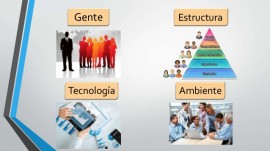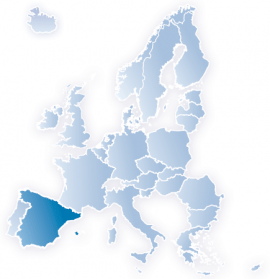- Fecha(s): 24/11/2016
- Lugar: Seminario del Departamento de Economía Aplicada - Facultad de Economía y Empresa (retransmitido en streaming).
- Ponente: Lucia Pozzi

Abstract: El objetivo del seminario es analizar las condiciones de salud en la isla de Cerdeña entre la Unificación italiana y la década de 1920 y documentar la extrema pobreza que afectaba a una parte importante de su población. En este periodo se acentuaron las diferencias de la isla con el resto del país, lo…
- Fecha(s): 17/11/2016
- Lugar: Seminario del Departamento de Métodos Cuantitativos para la Economía y Empresa, UMU. Retransmisión en directo.
- Ponente: Matilde Lafuente Lechuga

Since Esping-Andersen identified different welfare state systems among the European countries in his 1990 work The Three Worlds of Welfare Capitalism, research has been conducted to verify this typology. For instance, Sapir (2005), in his work Globalisation and the Reform of European Social Models, expands the original classification through a simple comparison, identifying four types…
- Fecha(s): 27/10/2016
- Lugar: Seminario del Departamento de Métodos Cuantitativos para la Economía y Empresa, UMU. Retransmisión en directo.
- Ponente: Mª Pilar Martínez García. Universidad de Murcia

Abstract: We analyze the effect of non-constant discounting on the sustainability of economic growth in a model with pollution and abatement. A balanced path equilibrium with decreasing pollution exists under plausible assumptions considering time-consistent agents. Compared to exponential discounting, the social optimum when consumers discount a non-constant rate shows greater abatement and consumption expenditure shares…
- Fecha(s): 04/10/2016
- Lugar: Sala de seminarios, Edificio Torretamarit, Universidad Miguel Hernández (Campus de Elche). Se grabará.
- Ponente: Carmen Beviá. Universidad de Alicante

Abstract: The paper focus on the dynamics of organizations and how they design its future according to the interest of their members. Agents are grouped into three classes, high, medium and low productivity. We analyze the evolution of organizations which take decisions by majority voting. We focus on the evolution of the political power and…
- Fecha(s): 02/06/2016
- Lugar: Seminario del Departamento de Economía Aplicada (A3.01), UMU. Se retransmitirá en directo.
- Ponente: José Antonio Sánchez Espín. Yale University

Abstract: Humans have tried to control the weather since immemorial times. Leaders who claim to control the weather commanded respect and power from their subjects. We analyze the case of pro-pluvia rogations in the Catholic Church in Murcia (Spain) over the last 400 years. Pro-pluvia rogations were ceremonies performed to ask God for rain. First, we assess…
- Fecha(s): 26/05/2016
- Lugar: Seminario del Departamento de Economía Aplicada (A3.01), UMU. Se retransmitirá en directo.
- Ponente: Antonio D. Cámara. Universidad de Jaén

Abstract: Durante las últimas décadas la historia económica y la historia antropométrica han avanzado sustancialmente en el estudio de dos dimensiones biológicas de los niveles de vida como son la salud y el estado nutricional de las poblaciones del pasado. Dichos avances se han apoyado en indicadores alternativos a los estrictamente económicos entre los cuales…
- Fecha(s): 19/05/2016
- Lugar: Seminario del Departamento de Economía Aplicada (A3.01), UMU. Se retransmitirá en directo.
- Ponente: Héctor García Montero. Bocconi University

Abstract: La evolución de la desigualdad económica se ha convertido en uno de los temas más candentes del debate público y académico en los últimos años. La historia económica tiene un papel relevante en los debates suscitados, como atestigua, por ejemplo, su presencia central -tanto en términos de evidencia empírica como de análisis- en el…
- Fecha(s): 12/05/2016
- Lugar: Seminario del Departamento de Métodos Cuantitativos para la Economía y Empresa, UMU. Retransmisión en directo .
- Ponente: Berta Ferrer. Universidad de Lleida.

Microeconometric analysis of tourist expenditure as a function of traveler characteristics has focused on total absolute expenditure, on absolute expenditures per trip budget parts, and in relative terms per trip budget parts. The analysis of absolute trip expenditure by budget parts confounds how much (budget volume) and how (budget allocation) tourists spend, while that of…
- Fecha(s): 05/05/2016
- Lugar: Seminario del Departamento de Métodos Cuantitativos para la Economía y Empresa, UMU. Retransmisión en directo .
- Ponente: Mohammed Dore. Brock University.

We consider quarterly data of the Spanish economy from 1987 to 2013 to establish causal interconnections in a model free manner, using symbolic dynamics and permutation entropy (PE) and establish the exogeneity of adoption of the Euro (in Jan 1999) as the governing mechanism that leads to the key causal impacts on (1) interest rates,…
- Fecha(s): 22/04/2016
- Lugar: Aula Seminario de Fundamentos del Análisis Económico Tino Martínez Gallur, B2/02
- Ponente: Alejandro Cuñat. Universidad de Viena

Abstract: We present a factor-proportions trade model in which heterogeneous firms can offshore intermediate inputs subject to fixed offshoring costs. In the skill-abundant country, high-productivity firms offshore a larger range of labor-intensive inputs to the labor-abundant countries than low-productivity firms. Differently from the traditional versions of factor-proportions trade theory, Heckscher-Ohlin forces operate at the within-industry…











